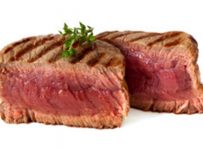
By Ayala Laufer-Cahana, M.D. HuffPost Healthy Living
It’s a peculiar thing, our fondness of little bubbles: Infuse water with carbon dioxide, and most people will find the mouth tingling sensation pleasant.
Carbonated, or effervescent mineral water, occurs naturally: Yes, it can come up from the ground, bubbles and all. But most carbonated drinks aren’t just water and bubbles; they also contain loads of sugar or sweeteners and many other not-so-natural additives.
Adding fizz to sweet water, researchers suspected, doesn’t just make soda taste good, it also might play tricks on our mind. In an effort to understand what soda does to our senses, and perhaps better elucidate why soda is so tightly linked to obesity, and diet soda to unhealthy metabolic outcomes, a new study used a functional MRI (fMRI) to monitor brain activity in response to ingesting caloric and non-caloric (diet) sweet drinks.
Mind-altering bubbles
The new study, published in Gastroenterology, finds that carbonation affected the sweetness perception of both natural and artificial sweeteners. The brain showed less activity on fMRI when the volunteers drank sweetened water that was also carbonated — compared to its activity when the drink was sweet but non-carbonated — demonstrating that the body senses less sugar when a drink’s fizzy.
Another interesting finding was that the presence of fizz makes it difficult for the brain to distinguish between caloric sweeteners (sugar and HFCS) and artificial, non-caloric sweeteners. That might explain diet soda’s success — the carbonation makes artificial sweeteners taste more like the real thing.
Soda and obesity
This new study contributes a new aspect to the understanding of the soda-obesity link. Soda not only adds a lot of empty calories that go in unnoticed and lead to no satiety — the combination of CO2 and sugar makes the brain sense less sugar, and therefore might increase sugar consumption.
The finding that carbonation makes us less aware of the difference between sugar and non-caloric sweeteners is fascinating. In an accompanying editorial Catia Sternini writes:
Tricking the brain about the type of sweet could be advantageous to weight loss because it facilitates the consumption of low-calorie drinks because their taste is perceived as pleasant as the sugary, calorie-laden drink. However, there is a downside; the altered energy homeostasis and balance induced by the reduced sweetness perception might stimulate sugar consumption. The latter interpretation might better explain the prevalence of eating disorders, metabolic diseases, and obesity among diet soda drinkers.
There’s nothing wrong with the bubbles themselves, but this new, small study suggests that the combination of bubbles and sweetness alters our sense of sweet, and since sweetness is very central to appetite and the desire to eat a food, this combination might be adding even extra to our waistlines.
Source: http://www.huffingtonpost.com/ayala-…b_3987799.html






